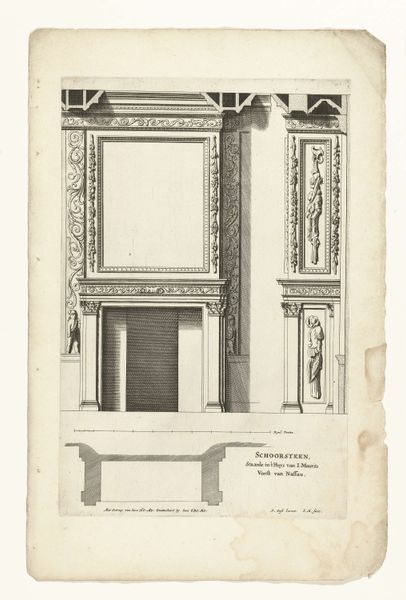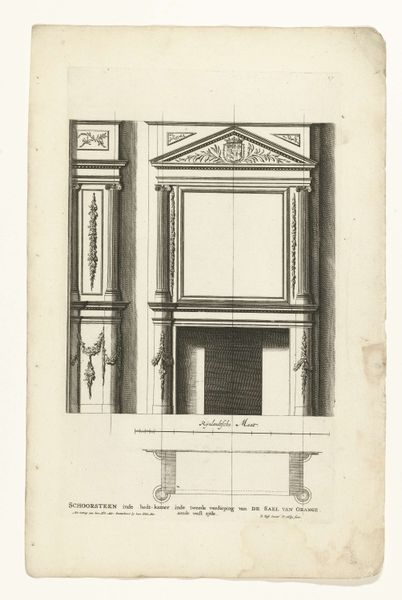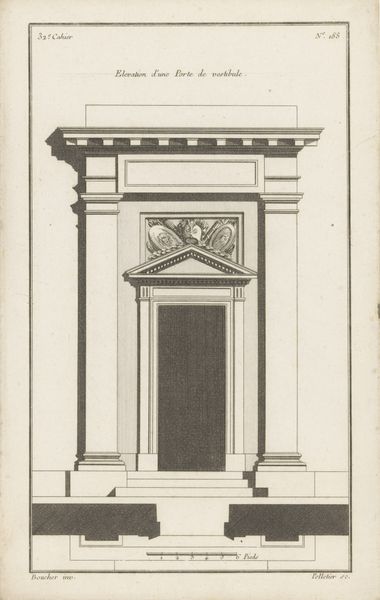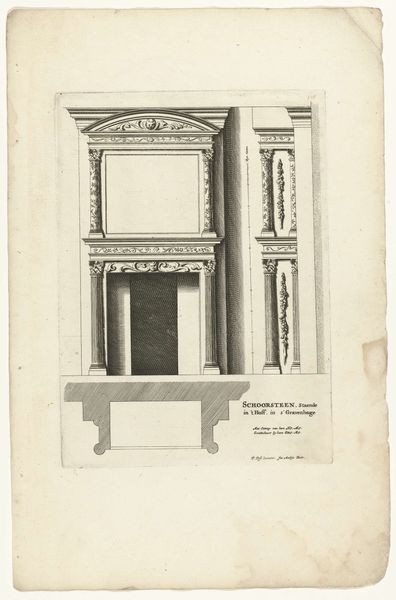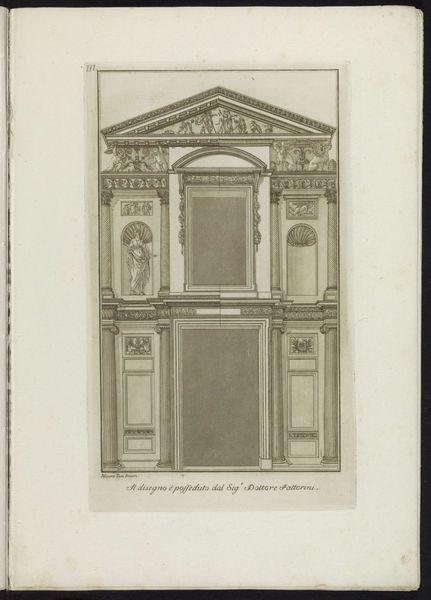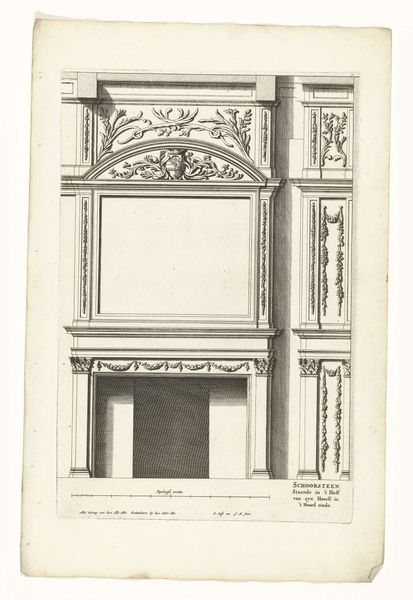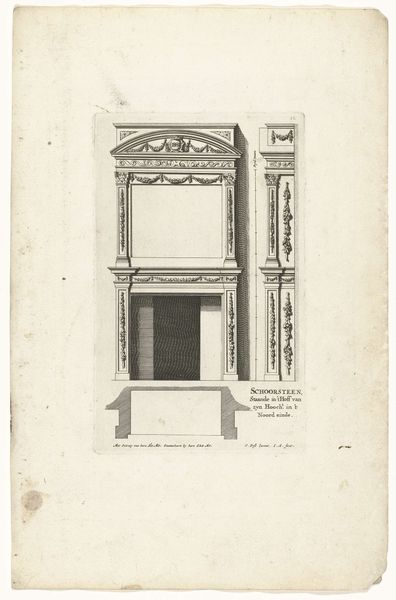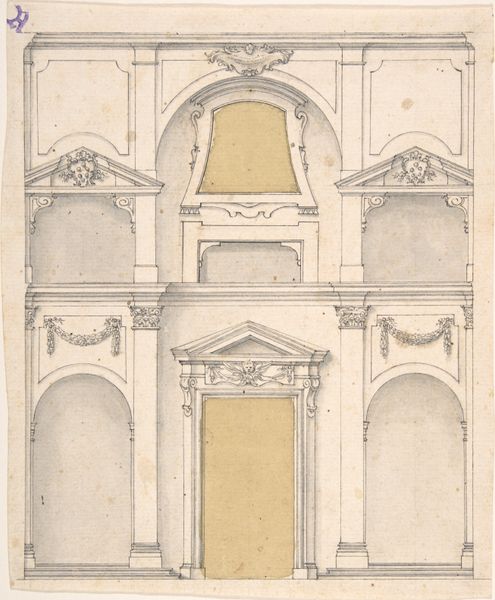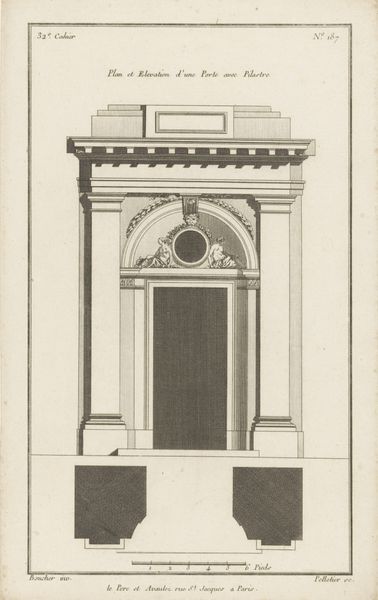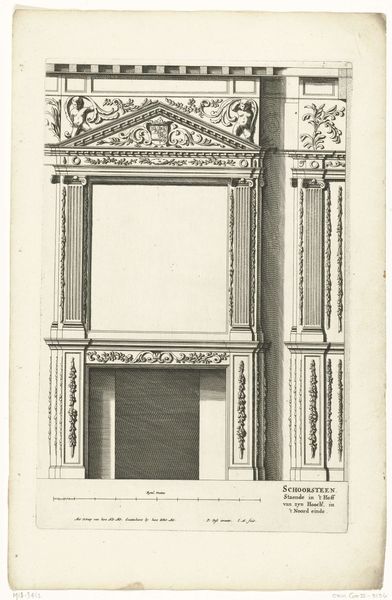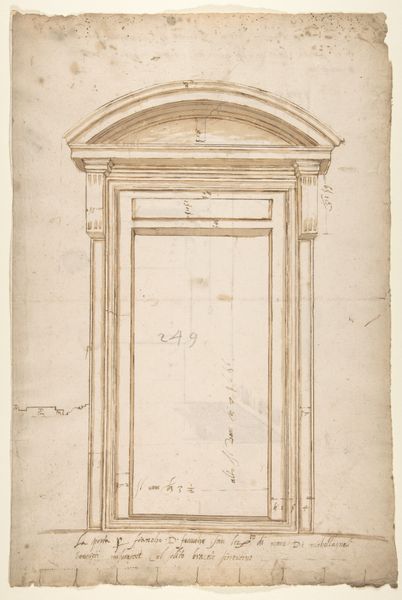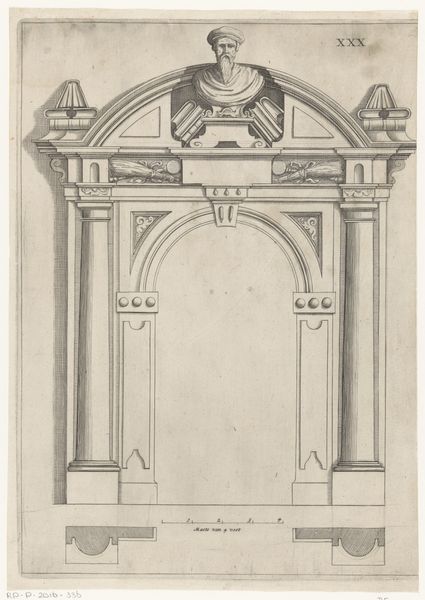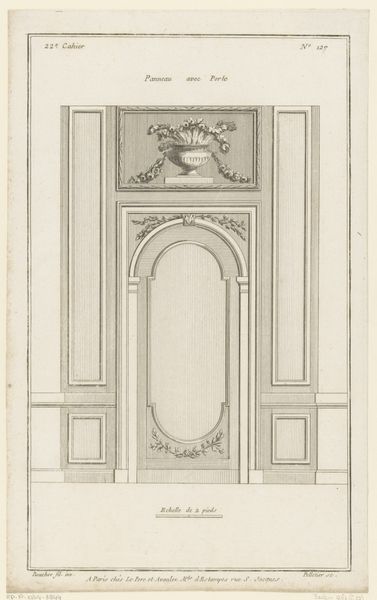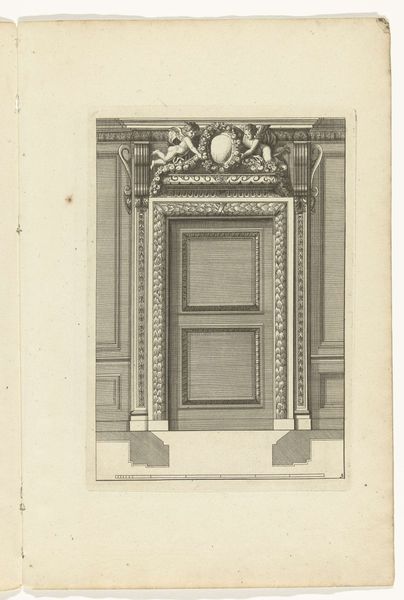
Ontwerp voor een portaal van een kerk (Chiesa di San Mamante) in Bologna 1787
0:00
0:00
anonymous
Rijksmuseum
drawing, print, paper, ink, pencil, architecture
#
drawing
#
neoclacissism
# print
#
paper
#
historical fashion
#
ink
#
geometric
#
pencil
#
pencil art
#
architecture
Dimensions: height 321 mm, width 191 mm, height 414 mm, width 289 mm
Copyright: Rijks Museum: Open Domain
Editor: Here we have a design for a church portal, *Ontwerp voor een portaal van een kerk (Chiesa di San Mamante) in Bologna*, created in 1787. It’s a drawing, primarily in ink and pencil on paper. There's a compelling balance struck here between precision and flourish... I’m curious, what do you see in this piece? Curator: It’s more than just architectural planning; it’s a deliberate orchestration of cultural memory. Note the recurring use of geometric forms – triangles and rectangles. These shapes serve not just structural purposes, but are symbols themselves of permanence and order, echoing the divine structures within. What’s more, the inclusion of those winged figures implies not only neoclassical aesthetic, but a connection to an imagined classical past, a time of intellectual purity and grandeur, which Neoclassicism so dearly treasures. Do you find these recurring visual themes creating continuity here? Editor: Yes, definitely, the symmetry gives it a balanced feel, yet those angelic figures feel somewhat…theatrical, juxtaposed against the severe lines. Curator: Exactly! It's a performance of faith through visual symbols. The building itself, the portal—it isn't just about access; it’s about transition. From the everyday world into the sacred space, a physical journey mirrored by a spiritual ascent, reinforced through visual cues designed to prepare the entrant psychologically for a transcendent experience. And what of its proposed function and location? Does Bologna evoke additional context? Editor: Bologna…it was a center of learning, yes? So this portal is also speaking to knowledge, to entering a realm of understanding as well? Curator: Precisely! The image carries so much more than meets the eye; it’s an interplay of faith, history and cultural identity represented symbolically in architectural form. It challenges us to examine our preconceptions about art as merely aesthetic. Editor: I see it now, it’s not just a pretty picture, it's a whole visual language! Thanks for untangling that. Curator: It was a pleasure, hopefully, such inquiry sparks similar curiosity toward unlocking deeper cultural meaning around us!
Comments
No comments
Be the first to comment and join the conversation on the ultimate creative platform.
